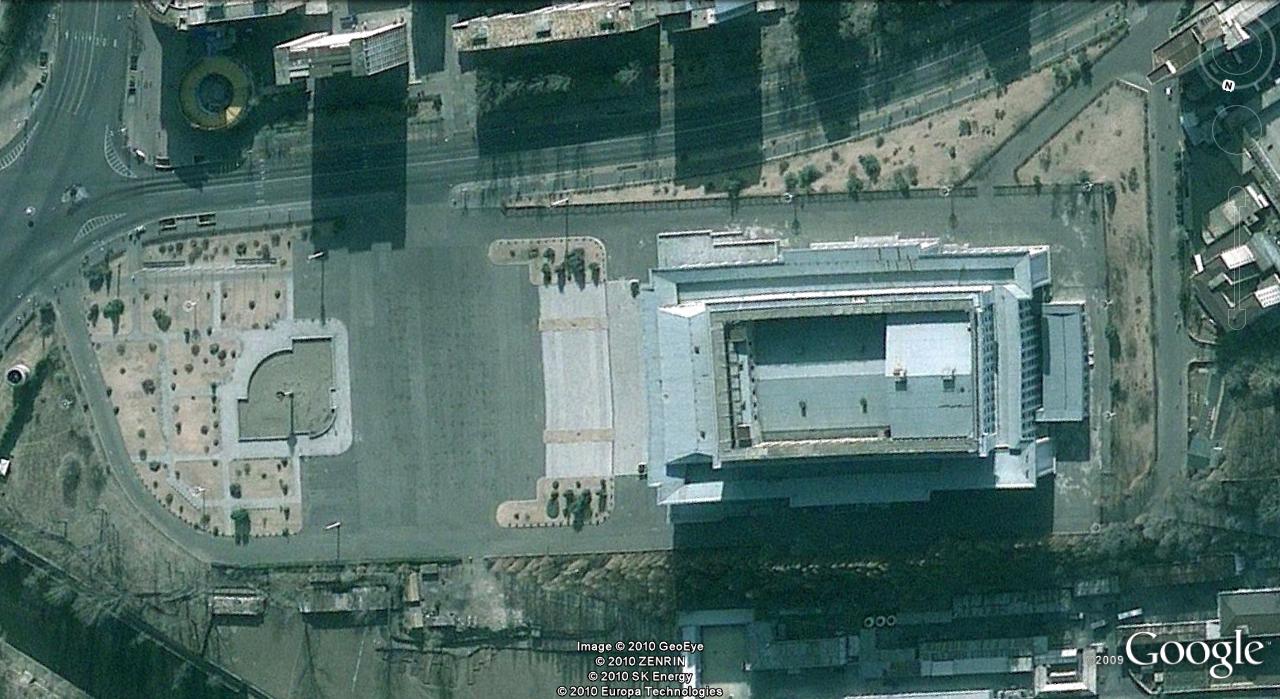Deferred Party Conference

The 25 April Culture Hall in Pyongyang was scheduled to be the setting for the 3rd Party Conference. Two weeks after delegates arrived in Pyongyang, the party conference has been postponed. (Photo: Google Earth)
Two weeks after party representatives began to assemble in Pyongyang, the 3rd Party Conference has been postponed. The official reason for the cancellation is damage and loss of life caused by torrential floods and a typhoon in July and August. Neither the postponement nor the start date have been announced, although it is speculated that the conference was rescheduled to occur before or after the celebration of the 65th anniversary of the Korean Workers’ Party in early October. The 3rd Party Conference was scheduled to begin on or around 7 September. The conference was expected to institutionalize (as a formality) bureaucratic and personnel changes in the party, as well as serve as a propaganda event to internally publicize the hereditary succession and create the cultural conditioning for a leadership shift to the late 2nd and 3rd generation of party and military leaders
Last week, it seemed the party conference was pushed back one week and would begin on or around 15 September. Political essays and editorials in the DPRK press extolled the virtues of the Korean Workers’ Party and lauded the virtues of generations of Kim Family leadership. There were accounts in the east Asian press of anonymous VIPs traveling to Pyongyang to attend the conference, or otherwise talking up the succession. There were also reports that the party representatives were undergoing registration and credentialing process.
In citing storm damage, the regime can portray itself as sensitive to public opinion. According to one report it was decided that inundated North Korean citizens (including party officials) would not look kindly upon the party depicting itself in a celebratory mood. Many Pyongyang watchers think that storm damage is a cover story for postponing the conference due to one or more problems related to the succession, Kim Jong Il’s physical and/or mental health, or the country’s policy shifts with regard to the Six Party nuclear talks and its economy.
Policy considerations may be a factor in the conference’s postponement, particularly if hereditary succession horsetrading involves a nuclear or ballistic gesture. It is also possible that the center is still paring down the personnel lists or revising the party mechanisms for succession. It is also likely that there will be changes to the delegations of party representatives, which is to say some party representatives will not return to Pyongyang once the conference is rescheduled. The substantial succession (i.e. Jang and O) proceeds. Despite the rumors about competing constituencies on the succession issue, the biggest human obstacle to advancing the hereditary succession campaign isn’t an octogenarian hardliner general or a powerful party manager, but Kim Jong Il.